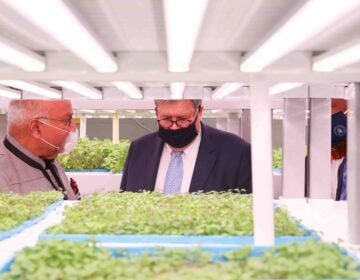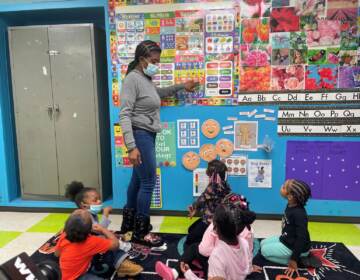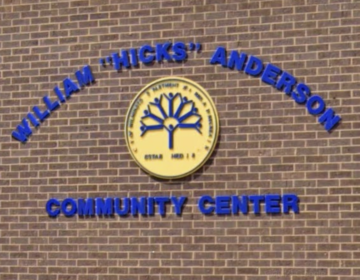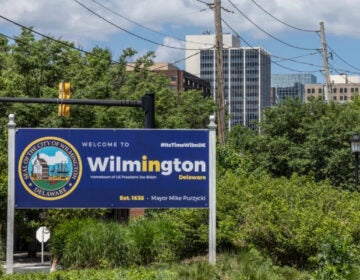Was it just a ‘pipe dream?’ Hyped Wilmington hydroponic farm that hired ex-prisoners is closing
The concept drew rave reviews from politicians, and a visit by then-Attorney General William Barr. But the founder says the pandemic proved to be crushing.
Listen 2:23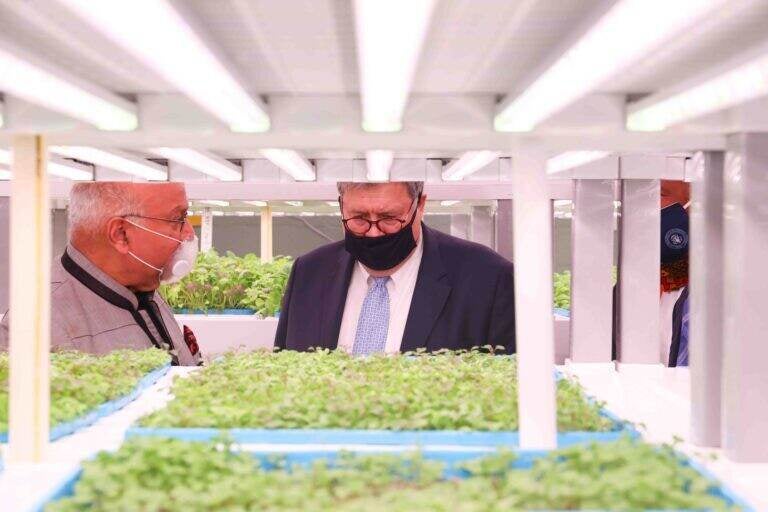
Second Chances Farm founder Ajit George gives a tour of the growing area to then-U.S. Attorney General William Barr in September 2020. (Saquan Stimpson for WHYY)
The concept was too delicious to resist for criminal justice reform advocates, politicians, and foodies alike.
A warehouse-sized hydroponic farm in Wilmington would be staffed by people who were recently incarcerated, who would be paid a living wage with health care and other benefits.
The so-called “agripreneurs” would grow leafy greens, herbs, and microgreens for local restaurants and learn skills to run their own businesses.
“Lettuce break the cycle” was the motto.
And so Second Chances Farm opened in late 2019 to great fanfare.
U.S. Sens. Tom Carper and Chris Coons, along with other city and state government leaders, lauded its potential.
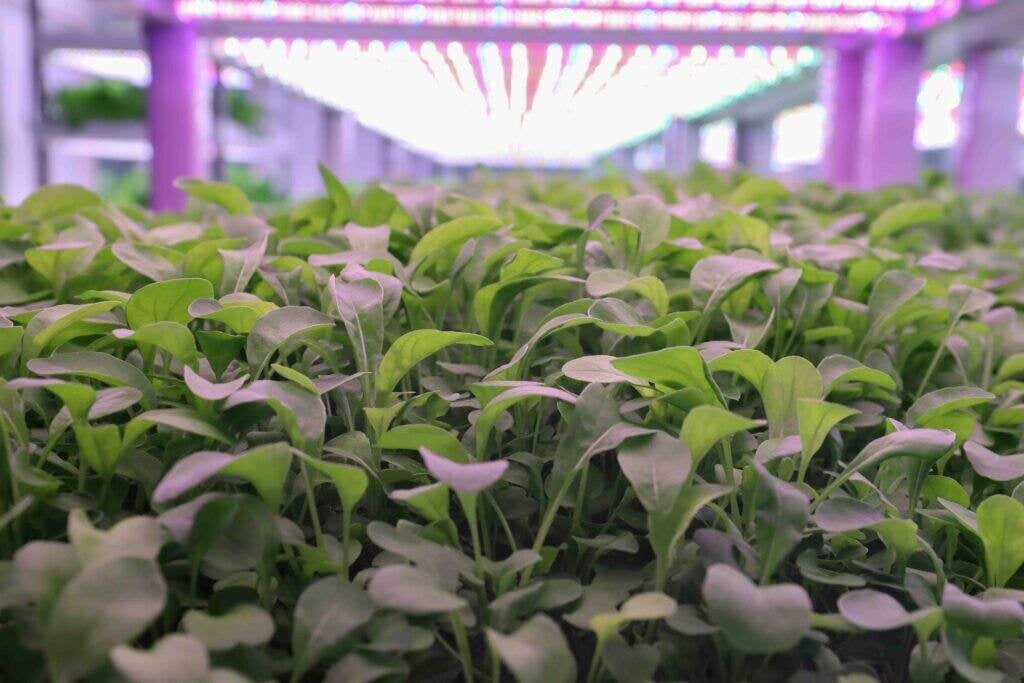
In September 2020, two members of then-President Donald Trump’s Cabinet, Attorney General William Barr, and HUD Secretary Ben Carson, visited the 47,000-square-foot facility in northeast Wilmington’s Riverside neighborhood, which is undergoing a major revitalization.
“This seems to be a recipe for success,” Barr told a gaggle of reporters, including members of the national press corps, who descended on Riverside to cover the tour.
“It’s not just an employer but is attentive to the special needs of its workforce, anything from continuing problems with drugs to knowing how to resist drugs, to practical problems about getting the proper documentation so they can function and get around in society,” Barr said.
Four months after that momentous visit, Ajit George, the farm’s founder, director, and promoter, hopped on the local hype over Delawarean Joe Biden’s presidential inauguration. The farm created two special concoctions: Joe’s ‘No Malarkey’ Spice Blend and Kamala Fearless Fusion Spice Blend.

George even talked about opening a satellite warehouse in Philadelphia.
But alas, the promise of Second Chances Farm has been eclipsed by economic realities and the coronavirus pandemic’s devastating impacts on restaurants that George wanted to supply with chemical- and pesticide-free greens and herbs.
With eateries first shut down and then operating in a reduced capacity for the last two years, the farm has only had a few restaurant clients and relied mainly on deliveries to individual customers in Delaware and Pennsylvania.
Debts piled up, as did lawsuits by vendors and contractors, as detailed in the Delaware News Journal. Instead of hiring up to 70 returning citizens, only about 10 stayed on the payroll, some of them only getting part-time hours.
So, on Friday, the much-ballyhooed warehouse closed its doors.
‘We’re not shutting down the idea’
George spoke with WHYY News about the decision while stressing that the concept that was so well-received is not dead.
The program will continue with a couple of employees growing at a small hydroponic farm at the David Finney Inn in New Castle, he said, and hopefully expand over time.
“We’re not closing. We’re not shutting down the idea,” George said. “So the farm will continue in multiple iterations. It just will not be doing the farm-to-table program anymore.”
That model was only meant to be temporary and was not sustainable, George said. He added that there’s no need to keep paying rent on the big warehouse since restaurants are just now starting to recover from the pandemic.
“We’re going to focus on the items that restaurants really want to get from us,” George said. “Things that they cannot get from their major suppliers of the fresh, which is edible flowers, microgreens and the really exotic types of basil,” such as the black basil used in the Biden-Harris spices.
“So what we are doing is going back to our roots, and we are simply vacating a building that is 90% empty for the entire time. And then we will grow back up to service more restaurants.”
George also confessed that he was “incredibly naïve” about the challenges faced by those formerly incarcerated. He said several employees have needed to go into rehab or therapy.
George said he thought “if I just offered a great job at $31,200 a year in a warm environment that only hired returning citizens that I could eliminate, that I could solve recidivism. But I didn’t take into account how seriously people were hurt mentally and how serious the issue with addiction was. It’s unbelievable. I tell you, I am blown away by the power of addiction and mental health on this particular community.”
‘It came to the result we knew would come true’
Haneef Salaam, a formerly incarcerated Wilmington man who works with ex-prisoners, said that despite the woes brought on by the pandemic, he’s not surprised Second Chances Farm did not succeed as envisioned. He contends George was too focused on promotion rather than developing and supporting its employees.
“I think it came to the result that we knew would come true,” Salaam said.
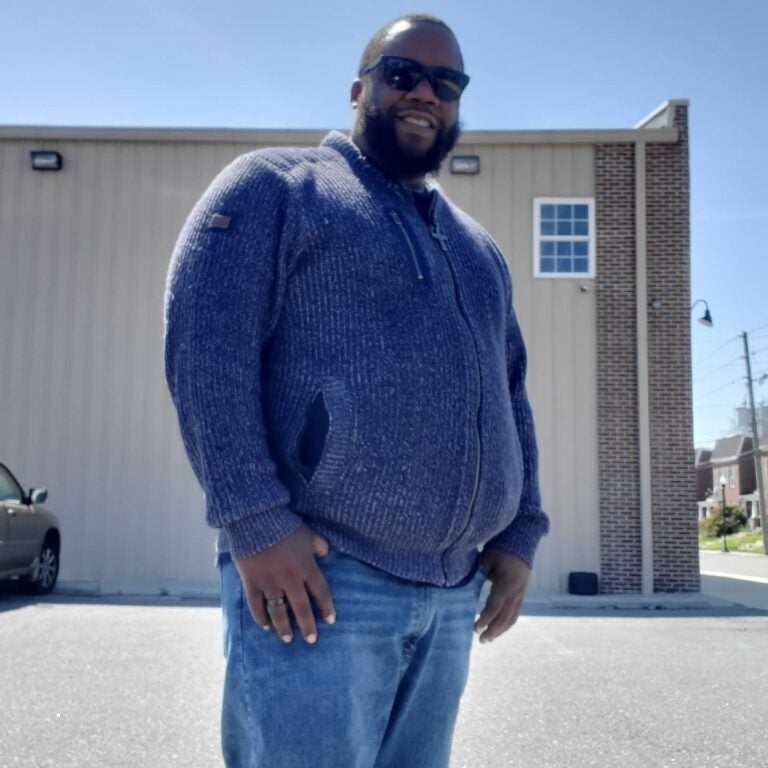
Some employees had reported to him that although they were receiving $15 an hour, “they were only getting anywhere from 10 to 30 hours a week” instead of 40 hours.
Salaam said the business model and promoting it seemed to be more important to George, “as opposed to the work that was necessary to help people to successfully reintegrate into the community.
“The point of the program was to teach individuals a skill that they may have been ignorant to in the past and to be able to take that skill into an entrepreneurial level. And I’ve never really seen the program invest in the people the way that it would have been necessary to have a flourishing program.”
Salaam did acknowledge the pandemic’s impact, but said other issues doomed Second Chances Farm.
“Restaurants took a big hit for a while there during the pandemic, so I’m pretty sure that affected the numbers,” Salaam said. “But again, it’s my belief that if they were making more of an investment in the people, meaning the returning citizens that they were training and employing, then I think it would have been better and able to sustain it.”
“They trained them enough to do a job. So if your job was to plant the seeds, they could teach you enough to plant the seeds. If your job was to clip the finished product, you knew enough to clip the finished product. But I don’t think they’ve trained people on how to go into an entrepreneurial effort through growing plants and vegetables.”
Meanwhile, Salaam said high hurdles remain for people leaving prison, especially for those who get into a program that collapses.
“For the individual who’s truly trying to better itself in this situation, it ends up being all smoke and mirrors or a pipe dream,” he said. “That could really affect the way a person thinks and their motivation to continue to want to drive to be successful.”
“So we have to find a way to stop pumping up these programs in their early stages, only for them to last one year, three year, five years, and then disappear and leave many people flailing in disappointment.”
The demise of the indoor warehouse farm is also a blow of sorts to REACH Riverside, the $300 million initiative to transform the long-impoverished area.
Logan Herring, who heads REACH Riverside, said Second Chances Farm had “aligned with the community’s vision” to become “a thriving and safe community full of loving and caring neighbors having a stake in building generational health and wealth.
“Empowering returning citizens with a second chance through genuine opportunities, support, and upskilling is critical to the success of our holistic revitalization efforts because of the systemic oppression that has plagued our communities, such as Riverside, for far too long.”
WHYY is your source for fact-based, in-depth journalism and information. As a nonprofit organization, we rely on financial support from readers like you. Please give today.



